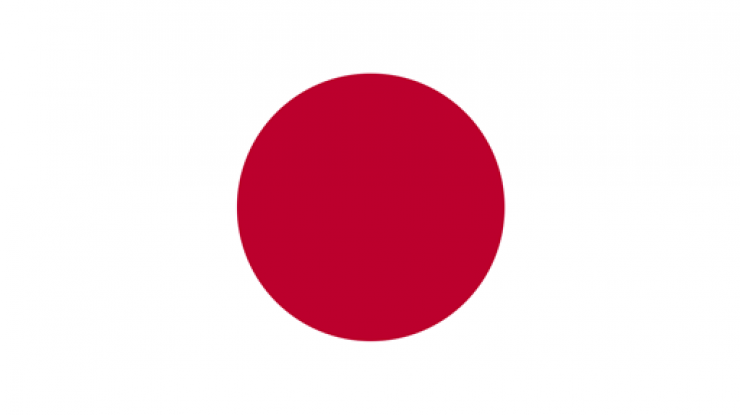 Japanese Course
Japanese Course

Course Description
Learning a new language is a fascinating adventure. It is a journey full of excitement, enthralling experience, occasional challenges, vivid illustration, and unusual or unexpected encounters. The countless benefits of acquiring a new language are undeniable.
Of all the in-demand foreign languages, why choose Japanese? To start with, let us discover three compelling reasons.
Firstly, The knowledge of Japanese will set you apart from the crowd. Secondly, career-wise, Japanese is one of the top languages in India. Last but not least, the colorful and vigorous culture aspect of Japan. As of today, Japanese is the most popular choice among East Asian Languages.
The Japanese language is the ninth most spoken language is the world, with 128 million people speaking it as their first language in only two countries and one of the most widely used languages on the Internet. There are significant Japanese speakers in Korea, Taiwan, England, Canada, Brazil, the United States, and the Philippines. Japan is the third largest economy in the world after the United States and China. The Japanese economy is larger than those of Germany and the United Kingdom, which are ranked fourth and fifth largest.
While no official data seems to exist, it is generally assumed that a significant majority are monolingual. Very few people speak any other language, including English. One main reason is they take pride in their native language, and there is no such thing as “English for Japanese.”
Overview of Levels
Each Language has a certain number of levels that are in progression from basics to advanced.
Basic Course Plan for Adults
Four language skills are assessed at each level: Listening, Reading, Writing and Speaking.
Basic Level: The ability to understand some basic Japanese.
Reading
One is able to read and understand typical expressions and sentences written in hiragana, katakana, and basic kanji.
Listening
One is able to listen and comprehend conversations about topics regularly encountered in daily life and classroom situations, and is able to pick up necessary information from short conversations spoken slowly.
Crash Course
Along with full term courses , we also offer crash courses for all languages to enable you to get an overview of the language and also to understand the language along with your love for it in a better way before taking the big plunge . Crash courses are usually termed at 10-15 hours which are enough to give you an insight to the language and the country’s culture.
Customised Course
Each person has a different reason to study languages. Some study it as a hobby , for immigration, as travellers, for their jobs , studying abroad, etc. Keeping in mind all the requirements, we also customise courses depending upon your need and area of focus. The duration and fees vary depending upon the requirements and the course is planned accordingly.
Academic Course
We also offer tuitions for academic courses for 11th & 12th standard and also to school students for all boards all standards.
Elementary Use of Language
The ability to understand basic Japanese.
Reading
One is able to read and understand passages on familiar daily topics written in basic vocabulary and kanji.
Listening
One is able to listen and comprehend conversations encountered in daily life and generally follow their contents, provided that they are spoken slowly.
Independent Language Use
The ability to understand Japanese used in everyday situations to a certain degree.
Reading
One is able to read and understand written materials with specific contents concerning everyday topics. One is also able to grasp summary information such as newspaper headlines. In addition, one is also able to read slightly difficult writings encountered in everyday situations and understand the main points of the content if some alternative phrases are available to aid one's understanding.
Listening
One is able to listen and comprehend coherent conversations in everyday situations, spoken at near-natural speed, and is generally able to follow their contents as well as grasp the relationships among the people involved.
Autonomous Language Ability
The ability to understand Japanese used in everyday situations, and in a variety of circumstances to a certain degree.
Reading
One is able to read materials written clearly on a variety of topics, such as articles and commentaries in newspapers and magazines as well as simple critiques, and comprehend their contents. One is also able to read written materials on general topics and follow their narratives as well as understand the intent of the writers.
Listening
One is able to comprehend orally presented materials such as coherent conversations and news reports, spoken at nearly natural speed in everyday situations as well as in a variety of settings, and is able to follow their ideas and comprehend their contents. One is also able to understand the relationships among the people involved and the essential points of the presented materials.
Course Plan for Kids
The ability to understand Japanese used in a variety of circumstances.
Reading
One is able to read writings with logical complexity and/or abstract writings on a variety of topics, such as newspaper editorials and critiques, and comprehend both their structures and contents. One is also able to read written materials with profound contents on various topics and follow their narratives as well as understand the intent of the writers comprehensively.
Listening
One is able to comprehend orally presented materials such as coherent conversations, news reports, and lectures, spoken at natural speed in a broad variety of settings, and is able to follow their ideas and comprehend their contents comprehensively. One is also able to understand the details of the presented materials such as the relationships among the people involved, the logical structures, and the essential points.
Certification
After the completion of each level the students will be given a certificate from The Language Academy and also will be eligible to appear for the JLPT International Examination whose certificate benefits are stated as under :
Acceptance in Japan
Test takers who pass JLPT N1 receive 15 points, and who pass JLPT N2 receive 10 points under the government's "Point-based Preferential Immigration Treatment System for Highly Skilled Foreign Professionals." Individuals with a total of 70 points or higher receive preferential treatment at immigration.
N1 is a prerequisite for foreign medical professionals who wish to take examinations to be licensed in Japan, and for certain foreign nationals who wish to attend nursing school in Japan.
Those who have passed either N1 or N2 (regardless of citizenship) are exempt from the Japanese language section of the middle school equivalency examination, which is required in order to enter a Japanese high school if the applicant did not graduate from a Japanese middle school.
N1 is sometimes accepted in lieu of the Examination for Japanese University Admission for foreign students who wish to study at Japanese universities.
One of the requirements for the nurse/caregiver candidates under the EPA. Under the Economic Partnership Agreement (EPA) with Indonesia, the Philippines, and Vietnam, a JLPT certificate is required for Indonesian, Filipino (approximately Level N5 or higher), and Vietnamese (Level N3 or higher) nurse or caregiver candidates who visit Japan.
© Copyright 2026 The Language Academy | Designed & Developed by Acetrot

